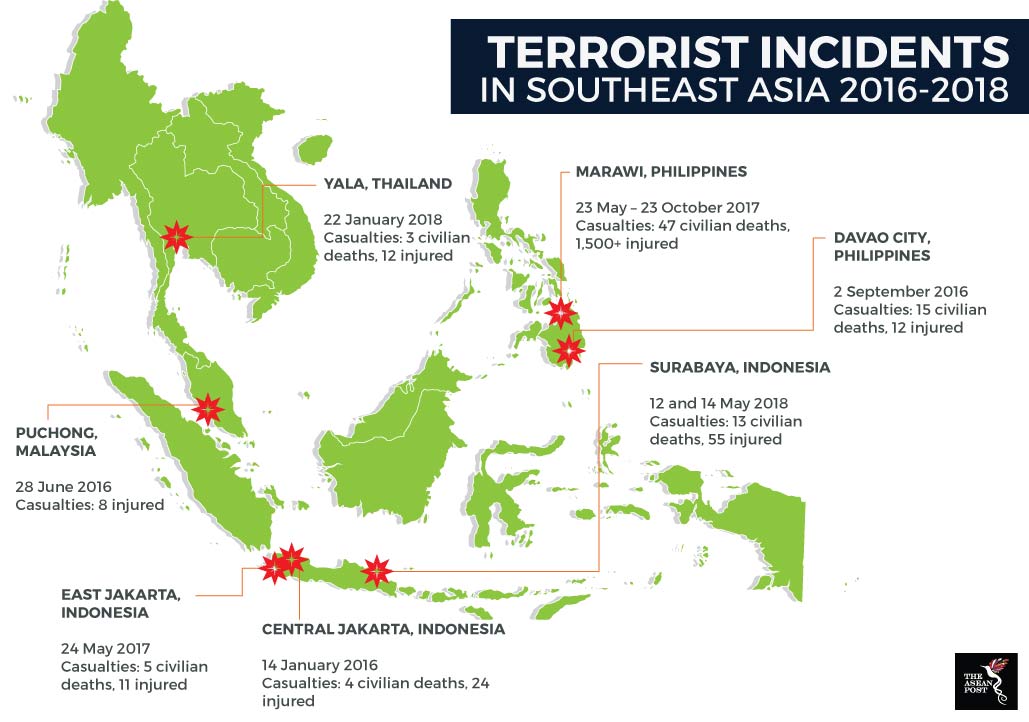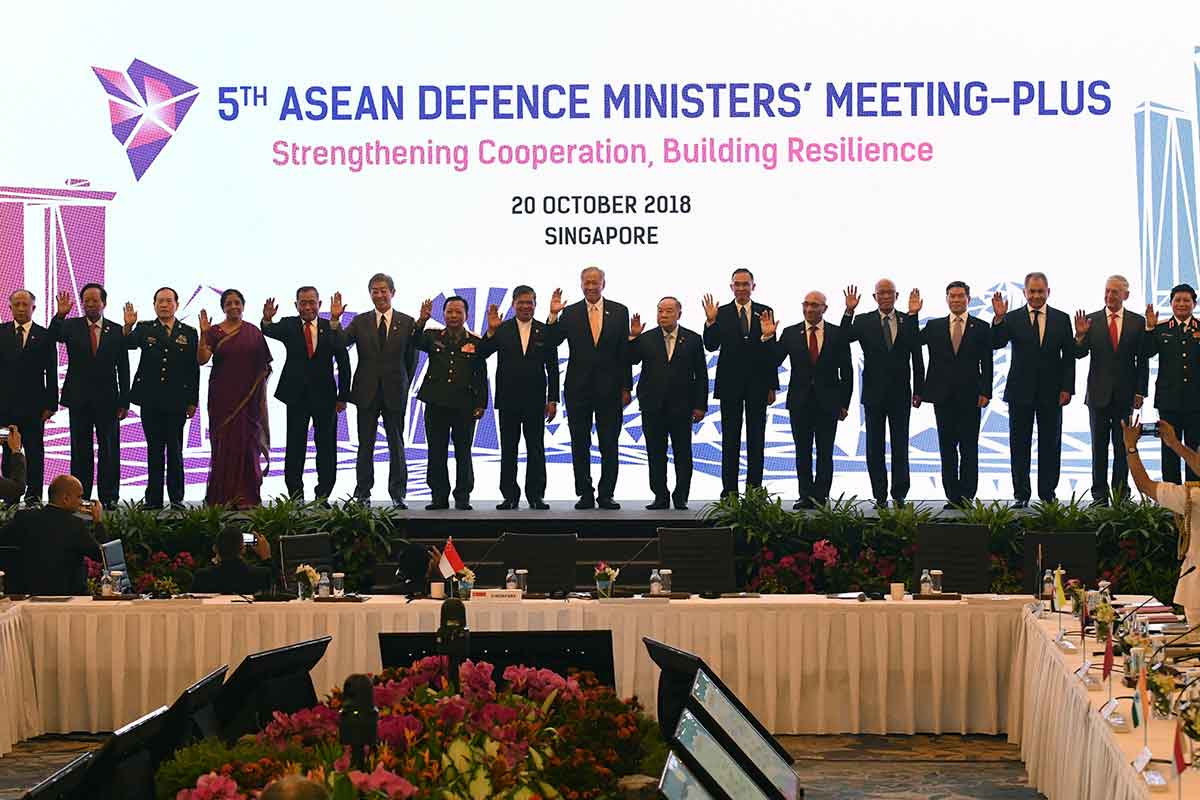Defence ministers of the Association of Southeast Asian Nations (ASEAN) have agreed to share intelligence in order to combat future threats of terrorism, radicalism, violent extremism, and other non-traditional threats in the region.
They were present in Singapore over the weekend for the 12th ASEAN Defence Ministers' Meeting-Plus (ADMM) and 5th ADMM-Plus. The latter is a high-level security dialogue joined by all eight of ASEAN’s dialogue partners (Australia, China, India, Japan, New Zealand, the Republic of Korea, Russia and the United States).
Proposed by Indonesia, the ‘Our Eyes’ intelligence sharing platform is loosely based on a similar intelligence-sharing alliance set up by the United States (US) to monitor the Soviet Union during the Cold War era. Under the initiative, senior defence officials will meet every fortnight to exchange information on terrorist groups and develop a common database of violent extremists.
In a joint statement, ASEAN and its partners pledged to intensify cooperation to repel the scourge of terrorism by undertaking “effective measures to counter terrorism” like intelligence sharing.
According to Singapore’s Defence Minister, Ng Eng Hen, all the ministers present at the meeting he chaired viewed “terrorism as a real and present threat.” He further remarked that they “felt that this must never happen again to any city within ASEAN,” in reference to recent terror attacks in Surabaya, Indonesia and Marawi in the Philippines.
“Unfortunately, even as the situation in Iraq and Syria improves, we are expecting more foreign fighters to come this way,” he added.
ASEAN leaders also adopted the first multilateral guidelines for air encounters involving military aircraft with China and the US expressing their intentions to explore the application of the guidelines.
Last year, ASEAN worked alongside Australia to establish the South East Asia Counter Terrorism Financing Working Group (SEA CTFWG) which aims to choke funding sources for terror activities. Intelligence gathered via this initiative will be key in providing regional authorities and industry partners valuable insights into the movement and tracking of financial flows that go towards funding terrorist agendas.

Source: Various
No stranger to terrorism
The recent church attacks in Indonesia perpetrated by the Islamic State (IS) has sent shockwaves throughout the region and brought into question the preparedness of ASEAN member states in dealing with terrorist threats on our collective shores.
The nature of terrorism is transnational, and no longer can countries expand their counter terrorism efforts in silos. Now more than ever, there is a strong necessity for cooperation across the globe to weed out terrorists and stifle their extremist agendas.
Terrorist groups like IS are quick to prey on those who have been marginalised and promote their extremist cause as an “us versus them” narrative. Their radicalisation efforts are also vastly done through the Internet and social media sites which eases the spreading of their ideology.
Videos of IS leaders praising terrorists as ‘martyrs’ and calling on young individuals to fight a jihad (holy war) act as effective ‘branding material’ that help highlight their cause as a noble one. This in turn, helps brainwash young, disenfranchised individuals to sacrifice their lives for a supposed ‘holy’ cause.
The ADMM and ADMM-Plus are arguably the strongest and most effective multilateral avenues that ASEAN uses to advance defence engagements and dialogues relating to counterterrorism between ASEAN member states and its dialogue partners.
They behave within the context of a ‘security community’ as opposed to a military alliance like the North Atlantic Treaty Organisation (NATO). As such, they rely on confidence building measures and defence diplomacy to grow trust amongst military organisations in the region which in turn ensures regional peace and stability.
It is on the back of this trust, that initiatives like ‘Our Eyes’ can be developed to weed out modern-day terrorists.
In the wake of increased frequency and potency of terror attacks, ASEAN member states have to remain steadfast in defending the region they call home. A consistent and thorough engagement with one another is crucial as good communication could potentially deter any future external threats.
Related articles:
The ASEAN approach to counter-terrorism
